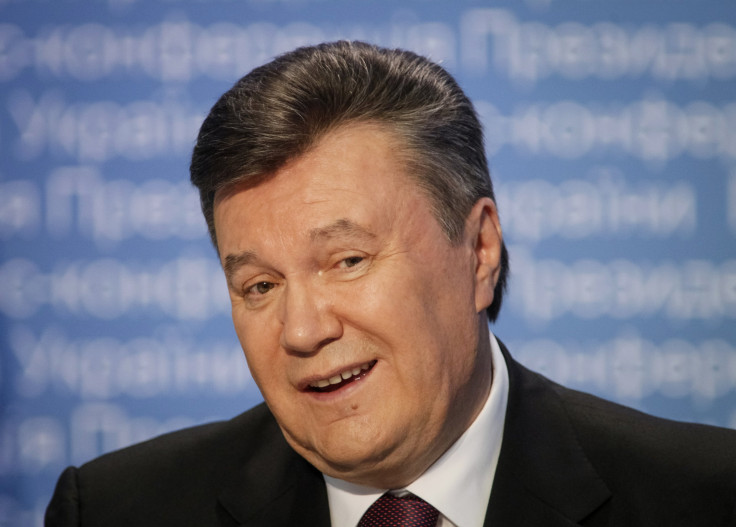Former Ukraine President Viktor Yanukovych Now Wanted By Interpol

Ukrainian ex-President Viktor Yanukovych was added to Interpol’s wanted list Monday, almost 11 months after he was ousted from power. Yanukovych fled the country in February following the Euromaidan demonstrations in Kiev and was last seen in Russia in February, according to various media reports.
Along with members of his Cabinet also sought by Interpol, Yanukovych is wanted for “misappropriation, embezzlement or conversion of property by malversation.”
The current Ukraine government, led by President Petro Poroshenko, says Yanuvoych’s crimes extend to murder, charging that he ordered troops to fire on protesters at demonstrations in early 2014, but the Interpol isn't looking for Yanukovych for murder, only for financial crimes.
Ukraine requested an international warrant for Yanukovych’s arrest, also known as a "red notice," by Interpol last March, but lack of evidence meant that Interpol was unable to act upon the request until this year.
Ukrainian Interior Minister Arsen Avakov announced the names of those sought on his Facebook feed. “On the international wanted list of Interpol (red notice -- wanted for extradition to Ukraine): Viktor F. Yanukovych, Olexander Yanukovych [businessman, son of the former president], Nykolai Azarov, Raisa Bogatyreva [former health minister], Yuri Kolobov [former minister of finance], G. Dzekon [Georgi, former head of Ukrtelecom],” he posted in Russian.
Some of those names, however, did not appear on Interpol’s wanted list. “When we issue a red notice, it is either made public or restricted to law enforcement agencies,” she said. “Either there is no red notice for that person, or the country has requested that the red notice not be made public,” an Interpol spokesperson told the Kyiv Post Monday.
The Kyiv Post suggested that the intense pressure on the new Ukraine administration to bring former government ministers to justice meant that censoring the names was an unlikely scenario. Instead it would be more likely that no red notice was issued at all.
© Copyright IBTimes 2024. All rights reserved.





















